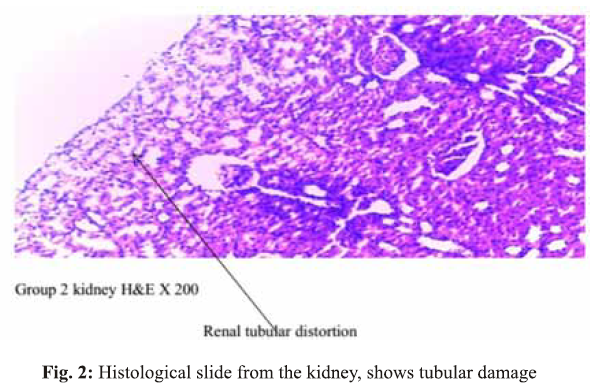Haematological profile and nephroprotective effect of ethylacetate extract of Persea americana (Avocado pear) seed in acetaminophen induced wistar rats
Keywords:
Persea americana, haematological profile, nephroprotective, ethylacetate, acetaminophenAbstract
Hematological profile and the nephroprotective activity of ethyl acetate extract of Persea americana seeds was investigated in albino rats. Twenty-five (25) rats (125–176 g) were randomly grouped into five. Rats in group 1 served as control; group 2 were orally administered with 750 mg/kg acetaminophen; animals in group 3 were fed simultaneously with 750 mg/kg acetaminophen and 200 mg/kg silymarin; while, groups 4 and 5 were administered with 200 mg/kg and 400 mg/kg of Persea americana seed extract respectively, for 14 days. Results of haematological analysis, for groups 3, 4 and 5, revealed significant (p<0.05) elevation in the concentration of white blood cells and platelets and a decrease in the levels of Hb, RBC, Neutrophil, Monocytes, Eosinophil and PCV as compared to groups 1 and 2. Results on renal function parameters showed that acetaminophen treatment caused nephrotoxicity as evidenced by marked elevation in serum urea and creatinine. Co-administration of Persea americana seed extract decreased the rise in these parameters in a dose dependent manner. Serum electrolyte indices also indicated an increase in K⁺ and Mg²⁺ concentrations, and a decrease in Ca²⁺ concentration for groups 3, 4 and 5. These results revealed that the use of the extract in phytotherapy may produce adverse side effects such as anaemia while ameliorating nephrotoxicity.



